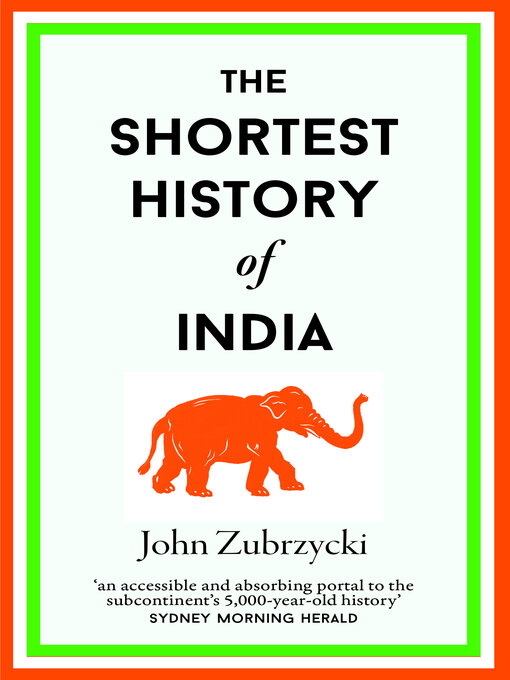From the tantalising traces of ancient Harappan civilisation to the emerging superpower of today, here is India's story in all its contradictions, drama and splendour.
In The Shortest History of India, John Zubrzycki distils five millennia of gods and kings, conquerors and colonisers into an epic tale teeming with personalities both legendary and largely unknown outside India. Gautama Buddha, Alexander the Great and Mahatma Gandhi share the stage with Candragupta ('India's Julius Caesar'), Nizam Saqqa, the water-carrier who became king for a day, and Raziyya, the first Muslim woman to rule in the subcontinent.
The later chapters reveal a modern India riven by contrasts: the brutal reality of partition and the fantasies of Bollywood, booming IT businesses and expanding slums. In conclusion, Zubrzycki asks whether internal challenges - from religious tensions to an increasingly undemocratic regime - might still thwart India's rise to wealth and power.
-
Creators
-
Series
-
Publisher
-
Release date
March 7, 2023 -
Formats
-
OverDrive Read
- ISBN: 9781913083359
-
EPUB ebook
- ISBN: 9781913083359
- File size: 5736 KB
-
-
Languages
- English
-
Reviews
-
Publisher's Weekly
September 18, 2023
Australian historian Zubrzycki (Empire of Enchantment) surveys five millennia of Indian history in this concise account. People first began living in the subcontinent 1.5 million years ago, making them one of the earliest human populations outside Africa. Noting that India has birthed three empires—Mauryan, Gupta, and Mughal—Zubrzycki explains that the Gupta Empire presided over a golden age (320–550 CE) of economic prosperity and flourishing science, and that the Mughal Empire (1526–1857) left behind some of the most exquisite architecture in all of Asia, including the Taj Mahal. Beginning in 1757, Great Britain’s East India Company gradually took over India in a “corporate coup unparalleled in history.” When a famine in the 1870s resulted in the company’s bankruptcy, the British government bailed it out, marking the beginning of British colonial rule in India. In the 20th century, the Indian National Congress pushed for India’s independence, which it attained in 1947 in an agreement that led to the partition of Pakistan, inhabited mostly by Muslims, from Hindu-dominated India, triggering the largest forced migration in history. Throughout his accessible narrative, Zubrzycki spotlights the origins of Indian innovations such as the decimal system, yoga, and vegetarianism. This is a fantastic resource for educators.
-
Loading
Why is availability limited?
×Availability can change throughout the month based on the library's budget. You can still place a hold on the title, and your hold will be automatically filled as soon as the title is available again.
The Kindle Book format for this title is not supported on:
×Read-along ebook
×The OverDrive Read format of this ebook has professional narration that plays while you read in your browser. Learn more here.

